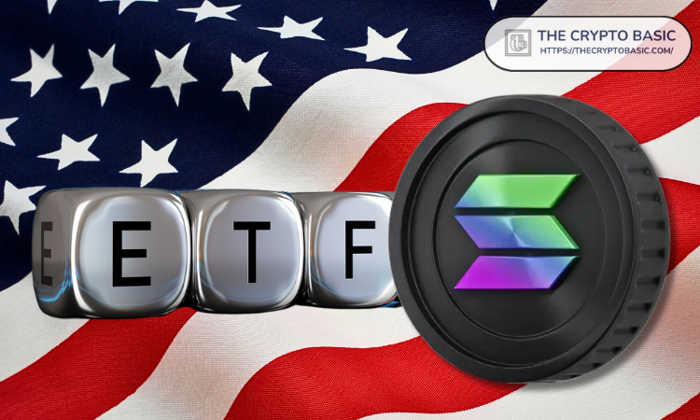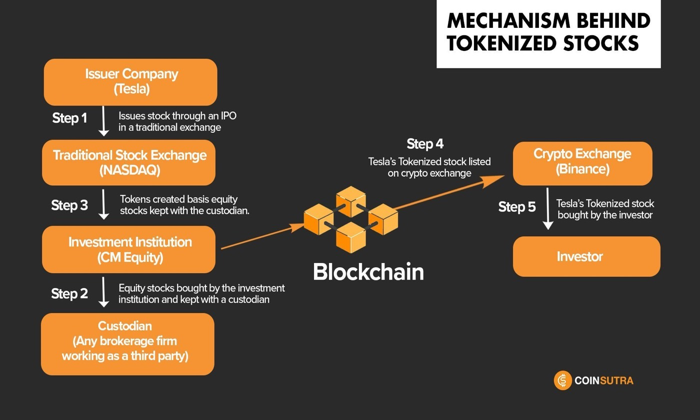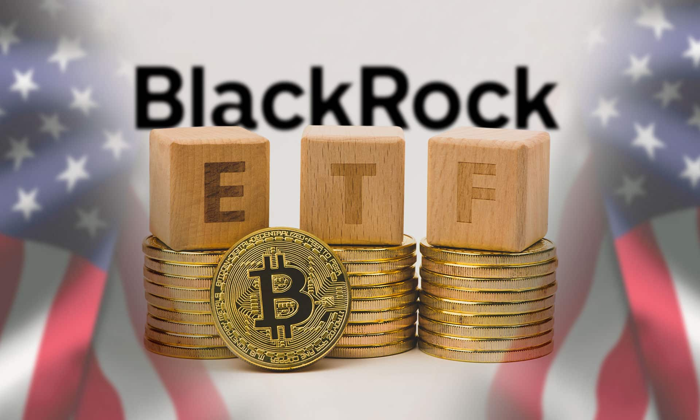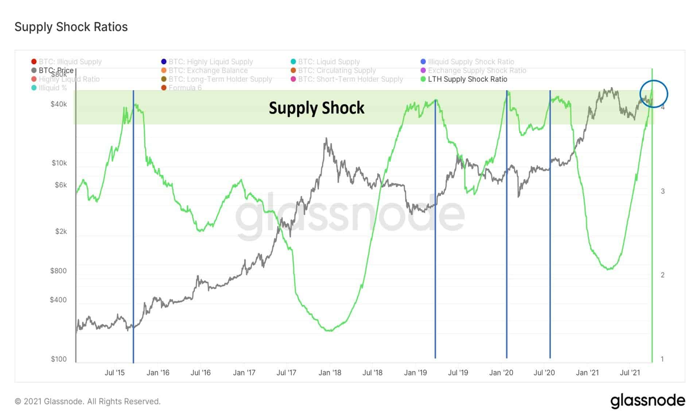Decentralized finance (DeFi) has emerged as a groundbreaking alternative to traditional financial systems, leveraging blockchain technology to offer transparency, security, and autonomy to users. However, despite its immense potential, DeFi adoption among institutions remains tepid, largely due to several challenges that deter mainstream engagement. Key concerns such as regulatory uncertainty, DeFi regulations, and privacy limitations significantly hinder institutional confidence in this innovative sector. As the landscape evolves, industry players are calling for a balanced approach that ensures blockchain compliance while also fostering a conducive environment for innovation. With the right strategies in place, the evolution of decentralized finance could redefine the financial landscape, allowing institutions to benefit from increased access and reduced costs.
The rise of financial decentralization represents a shift toward a more equitable financial ecosystem, where normal users can directly engage with services that once relied on intermediaries. This emergent landscape, often referred to as open finance or blockchain finance, promises greater control over personal wealth and more accessible financial tools. Nevertheless, institutions grappling with concerns surrounding compliance and legal accountability find themselves at a crossroads, questioning whether these novel platforms can uphold the same standards as traditional institutions. Challenges such as the intricacies of decentralized governance and evolving privacy regulations continue to test the limits of institutional confidence in such financial innovations. By navigating these hurdles, the future of decentralized finance could very well integrate seamlessly with conventional finance, paving the way for a revolutionary financial paradigm.
Understanding the Challenges of DeFi Adoption
Decentralized finance (DeFi) presents an innovative alternative to traditional financial systems, yet various challenges hinder its widespread adoption among institutions. Key concerns include regulatory uncertainty, lack of compliance standards, and issues related to user experience. Institutions rely heavily on compliance with existing financial regulations to operate effectively. When faces with ambiguous standards, financial firms become hesitant to explore DeFi options as they risk violating laws or enduring penalties. Addressing these concerns through collaboration between DeFi firms and regulators could pave the way for clearer guidelines, fostering an environment of security and innovation.
Furthermore, privacy concerns loom large in the discussion of DeFi adoption. The peer-to-peer nature and transparency of blockchain technology can expose sensitive transactional data that institutions are uncomfortable sharing publicly. Shibtoshi emphasizes that institutions looking to maintain confidentiality in their operations may view this transparency as a significant drawback. Innovative solutions, such as privacy-preserving protocols, are being developed to bridge the gap between decentralized finance and institutional privacy needs, representing a critical step toward making DeFi more appealing.
The Impact of Regulatory Landscape on DeFi
The regulatory landscape surrounding decentralized finance has seen significant developments, particularly following recent actions in the US Congress. The repeal of the IRS broker rule, which imposed stringent reporting requirements on DeFi platforms, showcased a growing recognition of the need for a balanced regulatory approach. While this move is seen as a positive step, concerns about overregulation remain. Institutions fear that excessive regulatory measures could lead to censorship, stifling the very innovation that defines DeFi. Moreover, with decentralized systems denouncing centralized control, regulatory pathways must ensure user empowerment and maintain the decentralized ethos.
As the DeFi space continues to evolve, questions about whether DeFi tokens should be classified as securities remain hotly debated. This uncertainty poses significant risks to institutional investors, who often require clear legal frameworks before diving into new technologies. Shibtoshi’s call for common-sense regulations resonates because these frameworks should empower innovators instead of restricting them. By crafting guidelines that support the principles of decentralization while addressing regulatory concerns, stakeholders can work towards a more conducive environment for DeFi this aligns with the interests of traditional financial institutions.
Privacy Solutions in Decentralized Finance
Privacy remains a critical hurdle for the adoption of decentralized finance, as many institutions prefer to maintain confidentiality over their operations and strategies. High transparency in blockchain disclosures means that private trading tactics or internal financial operations can potentially be revealed. This reality poses a challenge to many firms, for which discretion is crucial for competitive advantage. However, privacy-preserving technologies are emerging as viable solutions. Platforms like SilentSwap are at the forefront, developing systems that provide necessary privacy without sacrificing the underlying benefits of decentralization.
Advancements in privacy protocols not only aim to address the concerns of institutions but also propel DeFi into a future where it can coexist seamlessly with traditional finance systems. As institutions become more informed about the evolving landscape of DeFi, embracing these technological innovations will be essential. By prioritizing privacy alongside regulatory considerations, the DeFi community can work towards gaining the trust of institutional players, ultimately enhancing adoption and growth within the sector.
Navigating Institutional Hesitance Towards DeFi
Despite the promise of decentralized finance, there remains notable hesitance among institutions to fully engage with this innovative landscape. Major concerns surround the complexities associated with DeFi’s user experience, a crucial factor when institutional investors consider adopting new technologies. Unlike traditional financial systems, the user interface and processes in many DeFi platforms can be intimidating, deterring potential users. Bridging this gap requires developing user-friendly solutions that prioritize accessibility while maintaining the sophisticated capabilities that DeFi offers.
In addition to usability, the unresolved issues surrounding accountability in DeFi ecosystems further complicate institutional engagement. The lack of clear guidelines on responsibilities within decentralized networks raises questions about legal liabilities when things go wrong. Institutional players may shy away from entering the DeFi space until clear frameworks are established to articulate accountability for decentralized autonomous organizations (DAOs) and smart contracts. Addressing these concerns through comprehensive regulatory standards could inspire confidence and drive institutional investment into DeFi.
Decentralized Finance Regulations and Compliance
As decentralized finance gains traction, the dialogue around regulations and compliance becomes increasingly pertinent. Shibtoshi and other industry leaders advocate for wise regulatory measures that do not stifle innovation while still ensuring consumer protection. The challenge lies in creating a regulatory framework that understands the unique nature of DeFi while integrating necessary compliance protocols that ensures the space is safe from illicit activities. Regulatory clarity can encourage investment and innovation, making the DeFi landscape more appealing to traditional financial institutions.
Moreover, the balance between regulatory compliance and the decentralized tenets of the industry is crucial for maintaining the integrity of DeFi platforms. Overregulation may lead to the centralization of power, contradicting the core ethical principles of decentralized finance, which prioritize user autonomy and freedom. By engaging with regulatory bodies effectively, DeFi projects can articulate their needs and concerns while promoting policies that uphold decentralization, thus ensuring long-term sustainability and innovation.
The Future of Institutional Finance in a DeFi World
The intersection of decentralized finance and institutional finance presents a unique opportunity for the future of financial transactions. As traditional finance gradually shifts towards integrating blockchain technology, we can anticipate a more hybrid system where institutions leverage DeFi’s benefits while adhering to necessary regulations. Institutions are beginning to recognize that decentralized solutions can streamline their operations, reduce transaction costs, and improve efficiency. This acknowledgment fosters an emergent ecosystem where both traditional and decentralized systems can thrive.
However, this transition is not without its challenges. Institutions must navigate the complexities of DeFi protocols while staying compliant with evolving regulations. Continued education and engagement with DeFi projects are vital to understanding how these innovations fit into traditional finance models. As institutional players begin to embrace decentralized finance, they can help shape a more secure and accessible financial landscape for all, benefiting from improved products that integrate the best of both worlds.
Overcoming Barriers to DeFi Adoption
To further unlock the potential of decentralized finance, it is essential to identify and address the barriers that institutions face in adopting this revolutionary technology. The primary obstacles include regulatory fear, lack of operational support structures, and the intricacies of navigating through DeFi ecosystems. By fostering dialogue between DeFi developers and regulators, common ground can be found that encourages a supportive regulatory framework promoting growth while easing institutional fears regarding compliance and security.
Additionally, as data privacy emerges as a pressing issue, the introduction of robust privacy protocols can facilitate institutional participation in the DeFi space. With technology continually evolving, solutions that promise enterprise-level security without compromising the core principles of decentralization will play a pivotal role in easing institutional hesitance. As more stakeholders work collaboratively to resolve these issues, DeFi can solidify its position as a legitimate alternative to traditional finance.
Building Trust in Decentralized Finance
Trust is a cornerstone of any financial system, and decentralized finance faces unique challenges in this arena. To gain the confidence of institutional investors, DeFi must prioritize transparency, security, and user-friendly interfaces. Building trust involves educating potential users about the benefits and functionalities of decentralized systems. By showcasing success stories and the technology’s resilience, industry leaders can help dispel misconceptions surrounding DeFi and encourage broader adoption.
Moreover, fostering communities that emphasize collaboration and knowledge sharing within the DeFi ecosystem can enhance trust among institutions. Engaging with stakeholders across different sectors to understand their needs allows for the co-creation of solutions tailored to address their specific challenges. As trust is established, institutional investors will increasingly explore decentralized finance opportunities, paving the way for a more inclusive and diverse financial landscape.
Innovation at the Core of DeFi
At the heart of decentralized finance lies innovation, driving the transformation of how financial transactions and traditional finance are perceived. Innovative projects are exploring novel solutions to address real-world problems inherent in both DeFi and institutional environments. Whether it’s deploying advanced technologies to enhance user privacy or developing strategies to navigate complex regulatory landscapes, the spirit of innovation propels the DeFi sector forward, capturing the interest of institutional entities seeking efficiency and lower operational costs.
As the industry evolves, the emphasis on innovation must remain a priority for all stakeholders involved. By continuing to foster an environment of creative problem-solving, DeFi can attract more institutional investors, ultimately leading to mass adoption. This innovation not only enhances operational dynamics but also redefines financial inclusivity, enabling users to engage freely without traditional barriers. Therefore, embracing innovation in decentralized finance is paramount for both existing institutions and emerging players alike.
Frequently Asked Questions
What are the main DeFi challenges facing institutions today?
Institutions face several DeFi challenges, including regulatory uncertainty, privacy limitations, and the complex user experience inherent in decentralized finance. High transparency of on-chain transactions can expose sensitive information, deterring businesses from adopting DeFi solutions.
How does DeFi adoption impact traditional finance?
DeFi adoption can significantly disrupt traditional finance by offering decentralized and cost-effective alternatives to banking services. However, institutions remain hesitant due to concerns over compliance regulations, legal accountability, and operational challenges related to integrating decentralized finance with existing legacy systems.
What are the current DeFi regulations affecting institutional participation?
Current DeFi regulations are fragmented and often unclear, which poses significant barriers for institutional participation. Questions remain about the classification of DeFi tokens as securities and the legal responsibilities of decentralized autonomous organizations (DAOs), creating an environment of regulatory uncertainty.
How does DeFi maintain privacy for users and institutions?
Privacy in DeFi is a crucial concern for institutions. Innovative protocols, like those developed by platforms such as SilentSwap, are emerging to address privacy limitations, enabling transactions to remain confidential while still adhering to compliance measures.
What are the implications of decentralized finance on blockchain compliance?
Decentralized finance challenges traditional notions of blockchain compliance by emphasizing self-custodial models and minimizing reliance on intermediaries. However, the push for regulatory compliance may undermine these values, prompting a need for sensible regulations that promote innovation without compromising decentralization.
Why are institutions concerned about DeFi privacy?
Institutions express concern about DeFi privacy because the transparency of blockchain transactions can expose proprietary information, such as trading strategies and sensitive financial arrangements. This fear of revealing confidential data can inhibit institutional participation in decentralized finance.
What role do regulators play in the future of DeFi?
Regulators play a crucial role in the future of decentralized finance by crafting policies that support innovation while ensuring consumer protection. The ideal regulatory framework would promote the unique advantages of DeFi, such as speed and cost efficiency, without imposing overly stringent rules that could stifle growth.
What recent changes have occurred regarding DeFi regulations in the US?
Recently, the US Congress voted to overturn the unpopular DeFi broker rule, allowing decentralized finance platforms and protocols greater leeway regarding customer transaction reporting requirements to the IRS. This repeal may encourage more institutional involvement in the DeFi sector.
How can DeFi enhance transaction efficiency in finance?
Decentralized finance enhances transaction efficiency by enabling faster settlement times, lower fees, and direct peer-to-peer interactions without the need for traditional intermediaries. As institutions explore DeFi solutions, these benefits become increasingly attractive despite prevailing concerns.
What is the future of institutional involvement in DeFi?
The future of institutional involvement in DeFi largely depends on how effectively regulatory bodies can establish a balanced framework that promotes innovation while addressing legal concerns. As privacy solutions and compliance technologies improve, institutions may gradually adopt decentralized finance mechanisms.
| Key Points | Details |
|---|---|
| Concerns for Institutions | Institutions are hesitant about DeFi due to privacy issues, lack of standardized compliance, and legal accountability. |
| Transparency Issues | High transparency of on-chain transactions poses risks of revealing sensitive business information. |
| Regulatory Uncertainty | Unclear regulations regarding DeFi tokens and responsibilities of DAOs create hesitance among institutions. |
| Need for Innovation in Regulation | Common sense regulations are needed to balance innovation with the values of decentralization. |
| US Congress Actions | Congress voted to overturn the DeFi broker rule that required reporting to the IRS. |
| Impact of Overregulation | Over-regulation threatens to undermine the decentralized nature of DeFi and change control dynamics. |
Summary
Decentralized finance (DeFi) presents significant opportunities and challenges for institutions. As highlighted by Shibtoshi, addressing regulatory uncertainty and establishing a clear compliance framework is essential for encouraging wider adoption. Innovations in privacy and common-sense regulations can help maintain the decentralized and accessible nature of DeFi, thereby attracting institutional interest and fostering growth in this dynamic sector.
Decentralized finance (DeFi) is revolutionizing the way we perceive financial systems, offering an alternative to traditional banking that reinforces user autonomy and privacy. However, the path to widespread DeFi adoption is fraught with challenges, particularly concerning regulatory compliance and transparency. Institutions remain wary, as DeFi regulations can often appear vague, creating uncertainties around legal accountability and financial liabilities. Privacy concerns also loom large, as businesses strive to protect sensitive information in an environment where every transaction is publicly recorded on the blockchain. As the DeFi landscape continues to evolve, it becomes essential for regulators to collaborate with DeFi innovators to craft guidelines that support growth while safeguarding users’ interests and fostering trust in this emerging ecosystem.
When discussing decentralized financial ecosystems, one might encounter terms like blockchain-based finance or peer-to-peer finance, both of which signify a departure from conventional banking structures. These innovative systems aim to democratize access to financial services by eliminating intermediaries, thereby enhancing user experience and reducing costs. However, numerous obstacles hinder their widespread acceptance, including challenges related to regulations and compliance requirements. As financial institutions explore this new territory, they face crucial questions about the implications of decentralized governance models and the integration of privacy safeguards. Ultimately, the conversation around decentralized finance is not just about technology but also about redefining the relationship between users and their financial assets.















Leave a Reply